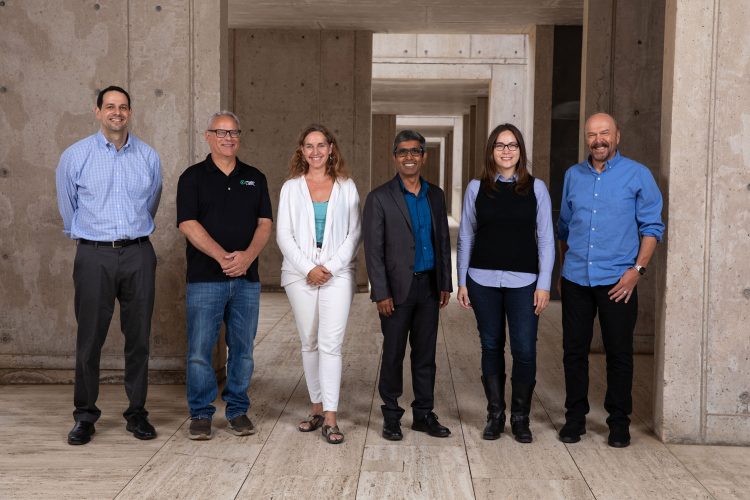Wu Tsai Human Performance Alliance
The Wu Tsai Human Performance Alliance is discovering biological principles to optimize human performance and catalyze innovations in human health. We are studying peak performance, with the goal of enabling all people to achieve optimal health and wellbeing. By comprehensively studying athletes of various ages, genders, ethnicities, abilities and disciplines, the Alliance is trailblazing new possibilities.
The Molecular Athlete

As part of the Alliance, Salk scientists are mapping the molecules and gene expression changes that occur during performance, healing and recovery. The goal is to create a comprehensive, dynamic, interactive blueprint of all cell types and molecules that determine human performance. The findings will provide unprecedented insight into how cells differ between sexes, adapt to training, rejuvenate while we sleep, adjust with age, respond to nutrients and repair upon injury. The results will be integrated into an open-source platform to promote further discovery and innovation, which may lead to new therapeutics and recovery regimens.
Director
Satchin Panda is the director of the Molecular Athlete, a professor in Salk’s Regulatory Biology Laboratory and holder of the Rita and Richard Atkinson Chair. He uses diverse techniques to understand how circadian rhythms, sleep, nutrition and ambient light affect physiology. He and his team apply this knowledge to devise novel intervention strategies to enhance human health.
Members
Joseph Noel is the director of the Jack H. Skirball Center for Chemical Biology and Proteomics and holder of the Arthur and Julie Woodrow Chair at Salk. He is a leader in organic chemistry, with specialization in natural compounds that regulate biological functions. His lab is screening bioactive molecules to find candidates that may enhance performance and accelerate healing.
Susan Kaech is the director of the NOMIS Center for Immunobiology and Microbial Pathogenesis and holder of the NOMIS Chair at Salk. She has illuminated key links between metabolism and immune cell function. Her lab is deciphering the immunological components of performance, injury and recovery under normal conditions and under stressors such as insufficient sleep, imbalanced nutrition and excessive training.
Alan Saghatelian is a professor in the Clayton Foundation Laboratories for Peptide Biology and holder of the Dr. Frederik Paulsen Chair at Salk. He develops and applies novel tools for discovering and measuring changes in small molecules that involve nutrition, physical activity and sleep. Saghatelian’s expertise in proteins, metabolism and fats is invaluable for establishing molecular signatures of performance, injury and recovery.
Dannielle Engle is an assistant professor in the Regulatory Biology Laboratory and holder of the Helen McLoraine Developmental Chair at Salk. She is creating novel models of human tissues and organs. She helped develop the first mini-organ (organoid) models of the pancreas and is now expanding these efforts to include a diversity of cell types and physiological conditions. In coordination with partnering institutions, Engle is establishing organoid models for performance tissues.
Joseph Ecker is the director of the Genomic Analysis Laboratory, a Howard Hughes Medical Institute investigator and Salk International Council Chair in Genetics. He is a world leader in the field of epigenetics, the study of chemical tags on DNA that regulate gene expression. Ecker develops sequencing-based technologies for cataloging and interpreting epigenetic modifications from single cells to whole tissues with the goal of understanding links to health and performance.







